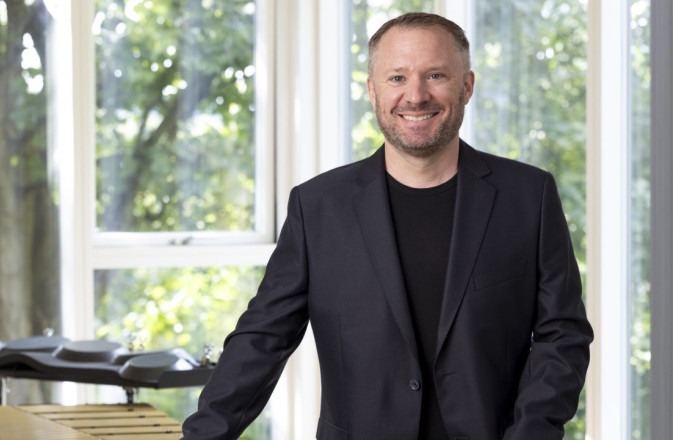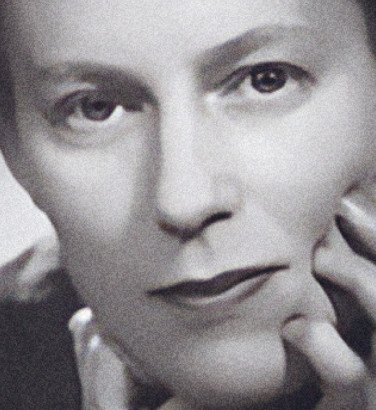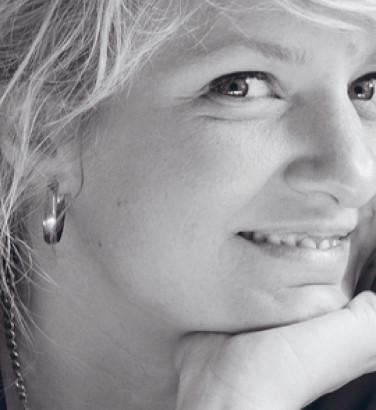
Steve Reich + programme notes
6 Nov 2023
News Story
Arvo Pärt: Fratres
In a concert that revolves around the beguiling, mesmerising music of minimalist founding father Steve Reich, Estonian fellow composer Arvo Pärt makes for a revealing starting point. Pärt outraged the Soviet authorities early in his career with his freewheeling, experimental sounds, only to immerse himself in medieval and Renaissance church music, and later develop an austere, ascetic musical style whose luminous simplicity and clarity offer a neat parallel with Reich’s jazzier repetitions. Fratres from 1977 is one of Pärt’s classic early works, and it develops, slowly and inexorably, as a contrast between two ideas. Occupying the bulk of the piece are simple, slow melodic passages, slowly descending as Fratres progresses. Punctuating those passages come low, repeated gestures, as though signalling different verses of a poem or song. The result is unavoidably meditative, engrossing and – quite literally – entrancing, sounding both unutterably ancient and bracingly modern.
Louis Andriessen: Tapdance
If Reich represents the elegant, graceful, sometimes unquestionably pretty end of minimalism, then Louis Andriessen’s music – raw, dissonant, propulsive, downright challenging at times – might inhabit the opposite extreme. Up until his death in July 2021, Andriessen was the senior figure in a new Dutch musical movement that took an aggressively energetic, sometimes cacophonous slant on American minimalism, as experienced in classic Andriessen works from the 1970s such as Hoketus and De staat. By the time he wrote his brief percussion concerto Tapdance for Colin Currie in 2013, Andriessen had found a new sense of lyricism – in this case inspired directly by jazz. The composer based the piece around the jazz tune ‘Señor Blues’ by Horace Silver (quoted directly near the start), but took inspiration from Darius Milhaud’s 1929 Percussion Concerto in navigating an unexpected journey from upbeat exuberance to music that’s far darker and more introspective. Currie’s percussion contributions likewise move from intricate tabletop tap rhythms to marimba ruminations and, finally, quiet rumblings on timpani.
Julia Wolfe: Fuel
New York-based composer Julia Wolfe comes from the generation after Reich, and her music combines the pulsing repetitions of minimalism with the raw, visceral power of rock and pop in an unmistakable, very powerful, style – sometimes confrontational, always provocative, and impossible to pigeonhole. Her 2007 Fuel for string orchestra is a case in point. Originally conceived as a collaboration with film maker Bill Morrison, it’s a forceful reflection on the inescapable fossil-fuel driving forces behind the globalised economy, mixing together thrilling energy and machine-like precision with more than a hint of alarm. Fuel erupts with ferocious, unstoppable energy across five slowly developing movements (played without breaks), its apparently ceaseless rushing figurations occasionally cracking to reveal brief glimpses of lyricism, ultimately embracing Vivaldi-like sounds that quickly rediscover the piece’s opening power.
Steve Reich: Pulse
Steve Reich is one of a clutch of US composers who reacted against what they saw as the bewildering complexity of new music with a focus on simplicity, slow change and – to quote the title of an influential essay by Reich – music as a gradual process. At its simplest, in works such as Piano Phase or Violin Phase, that meant repeating a melody over and over again on one instrument, while another does the same but gradually moves out of sync, creating fascinating aural patterns.
By the time he came to write Pulse in 2015, however, Reich’s music had moved on significantly from his earlier asceticism, although he called the piece ‘in part, a reaction to my Quartet of 2013 in which I changed keys more frequently than in any previous work. In Pulse I felt the need to stay put harmonically and spin out smoother wind and string melodic lines in canon over a constant pulse in the electric bass and or piano.’ The piece is based around a single theme that remains always recognisable, despite Reich’s perpetual variations and changes, in agile melodic lines from flutes, clarinets and violins, against chiming harmonies from piano (immovably in its upper register) and the warmth and depth of an electric bass.
Steve Reich: Radio Rewrite
Reich first met Radiohead guitarist Jonny Greenwood in September 2010, when Greenwood was performing Reich’s Electric Counterpoint at a festival in Poland. They hit it off immediately – Reich was fascinated by Greenwood’s wide-ranging musical passions (from Penderecki and Messiaen to jazz and Krautrock), and impressed by his prowess as a performer across musical genres, though ashamed he didn’t know Radiohead’s music. He put that right by immersing himself in the band’s back catalogue, and used two songs – ‘Jigsaw Falling into Place’ from 2007 album In Rainbows and ‘Everything in its Right Place’ which opens 2000’s Kid A – as the basis for a piece very much in his own distinctive style. You could describe Reich’s approach as thoroughly ‘classical’: rather than sampling the original tracks, he analysed and reconfigured their melodies and chord progressions, adapting them to his own musical world. Reich himself admitted: ‘As to actually hearing the original songs, the truth is – sometimes you hear them and sometimes you don't.’ The final, five-movement piece – arranged fast-slow-fast-slow-fast – takes chords and melodic fragments from ‘Jigsaw Falling into Place’ for its faster movements, and rearranges the distinctive chord progression from ‘Everything in its Right Place’ in its slow movements.
YOUR ORCHESTRA
First Violin
- Stephanie Gonley
- Matthew Ward
- Alex Lomeiko
- Aisling O'Dea
- Fiona Alexander
- Kristin Deeken
Second Violin
- Gordon Bragg
- Michelle Dierx
- Rachel Smith
- Amy Cardigan
- Niamh Lyons
Viola
- Max Mandel
- Zoë Matthews
- Brian Schiele
- Steve King
Cello
- Donald Gillan
- Su-a Lee
- Christoff Fourie
Bass
- Nikita Naumov
- Jamie Kenny
Bass Guitar
- Pete Wilson
Flute
- André Cebrián
- Marta Gómez
Oboe
- Katherine Bryer
- Fraser Kelman
Cor Anglais
- Fraser Kelman
Clarinet
- Maximiliano Martín
- William Stafford
Bass Clarinet
- William Stafford
Contrabass Clarinet
- Scott Lygate
Saxophone
- Lewis Banks
- Gareth Brady
Bassoon
- Cerys Ambrose-Evans
- Alison Green
Horn
- Lauren Reeve-Fawlings
- Andy Saunders
Trumpet
- Peter Franks
- Marcus Pope
Trombone
- Nigel Cox
- Richard Leonard
Percussion
- Tom Hunter
- Colin Hyson
Piano
- Simon Smith
- Michael Bawtree
Harp
- Eleanor Hudson
Related Stories
![Composer Ruth Gipps leaning forward with both hands gently touching her face.]()
Digital Season: Gipps Seascape
7 March 2025
Read the programme note for our online performance of Gipps' Seascape![Composer Andrea Tarrodi leaning forward with one arm resting on a surface and her face resting on the palm of her other hand.]()
Digital Season: Andrea Tarrodi Serenade in Seven Colours
6 November 2024
Read the programme note for our online performance of Tarrodi's Serenade in Seven Colours.![A historic photograph of Samuel Taylor-Coleridge sitting in a chair, wearing a suit.]()
Digital Season: Samuel Coleridge-Taylor Novelletten
17 October 2024
Read the programme note for our online performance of Coleridge-Taylor's Novelletten Nos 1 & 3.



